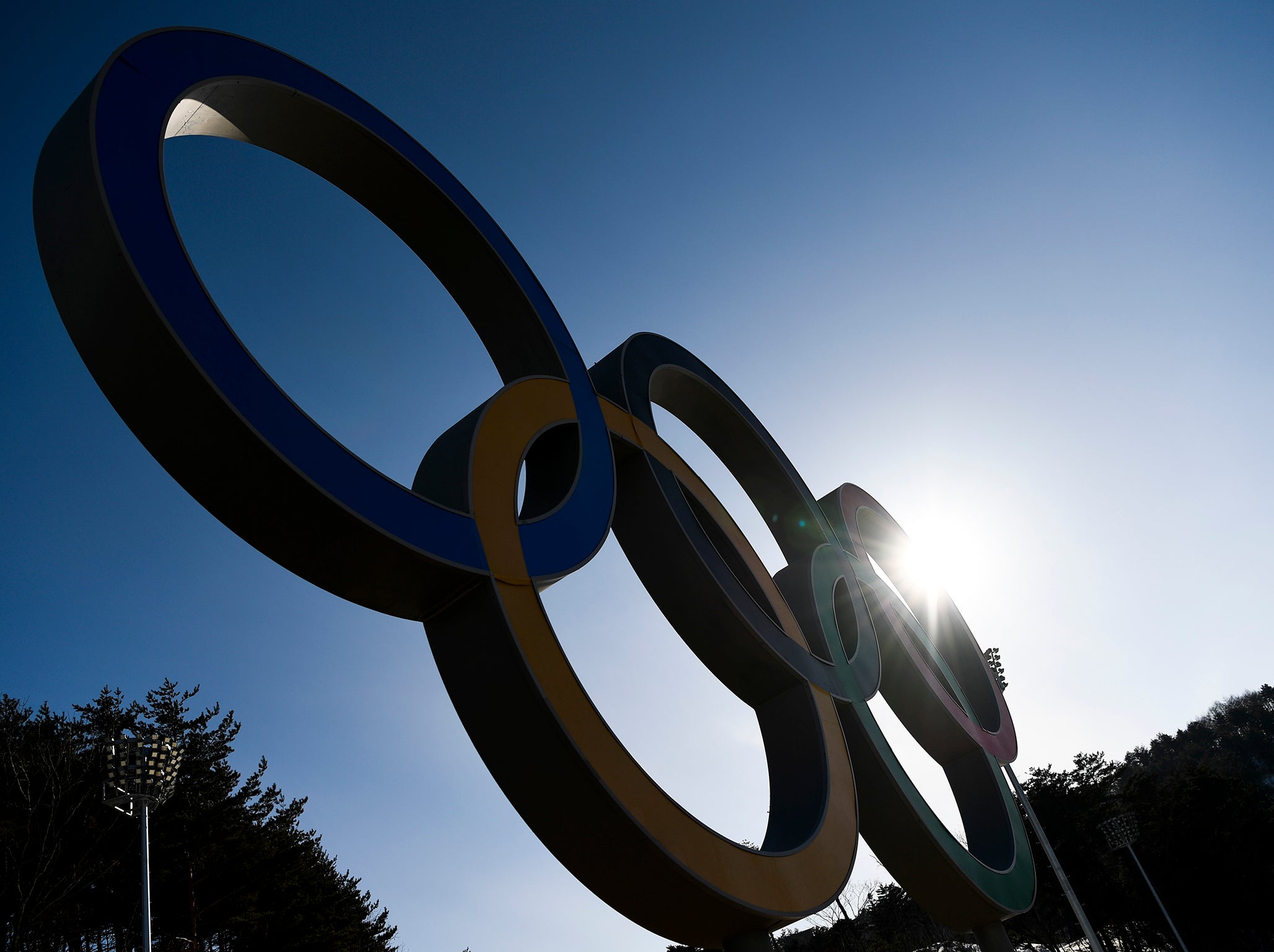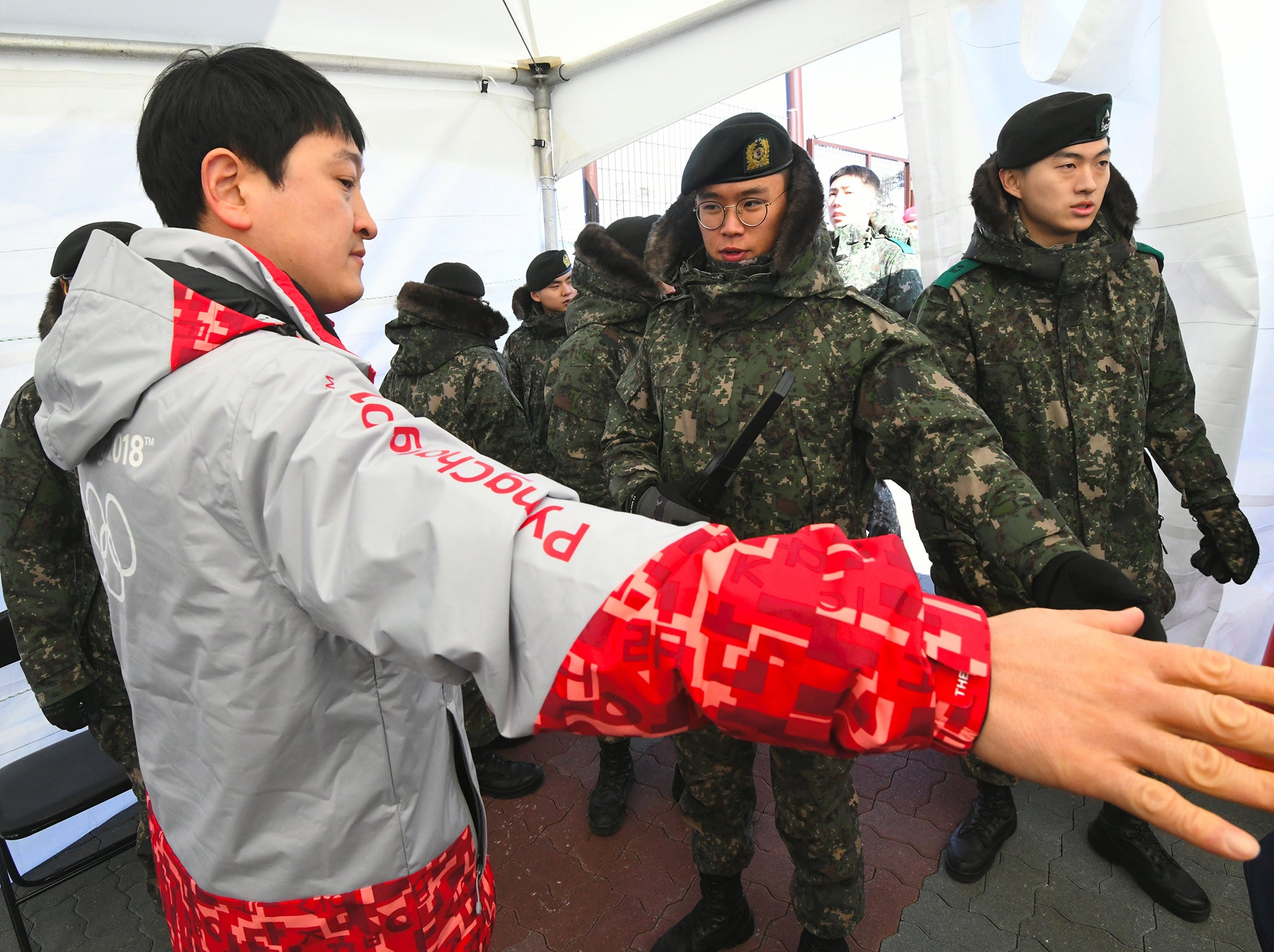Winter Olympic officials left scrambling as norovirus outbreak hits Pyeongchang games
According to Olympics organisers, the norovirus spread began Sunday when private security workers

Your support helps us to tell the story
From reproductive rights to climate change to Big Tech, The Independent is on the ground when the story is developing. Whether it's investigating the financials of Elon Musk's pro-Trump PAC or producing our latest documentary, 'The A Word', which shines a light on the American women fighting for reproductive rights, we know how important it is to parse out the facts from the messaging.
At such a critical moment in US history, we need reporters on the ground. Your donation allows us to keep sending journalists to speak to both sides of the story.
The Independent is trusted by Americans across the entire political spectrum. And unlike many other quality news outlets, we choose not to lock Americans out of our reporting and analysis with paywalls. We believe quality journalism should be available to everyone, paid for by those who can afford it.
Your support makes all the difference.Signs posted around the Olympic venues urge extreme caution. Nine hundred troops stream into the area to help. Worried organizers sequester 1,200 people in their rooms.
Officials are scrambling on the eve of the biggest planned event in South Korea in years — not because of anything related to North Korea and national security, but in an attempt to arrest the spread of norovirus at the Pyeongchang Games.
Local media are fretting over a "virus panic." South Koreans, always quick to air their views online, have poured scorn on the government's response and preparations. Are the games hygienic? What will people think about South Korea? Could this spread to the athletes?
Norovirus fears may turn out to be much ado about nothing. But with a national reputation on the line, officials are scrambling to contain its spread. No one here wants these games associated more with disease than athletics in the manner that Zika, a mosquito-borne disease linked to a rare birth defect, loomed over the Rio Olympics in 2016.
According to Olympics organizers, the norovirus spread began Sunday when private security workers staying in the Jinbu area of Pyeongchang started complaining of headaches, stomach pain and diarrhea.
About 1,200 people were kept in their rooms during tests for the contagious virus. Local and national health officials say they have investigated 1,023 people. Games organizers said Wednesday that 32 workers are being treated for norovirus and are in quarantine, including three foreigners.
Because the sick workers handled security, 900 military personnel have been brought in to work at 20 venues until the sick and sequestered can return to work. Officials are conducting an epidemiological survey to track the disease's spread. A preliminary five-day survey of water for cooking and drinking has come up negative for norovirus. Health officials say they are also inspecting restaurants and all food facilities linked to the Olympics.

Notices have been posted around the Olympics urging regular, 30-second hand-washing sessions and the thorough boiling of water and washing of fruits and vegetables, among other precautions.
The virus spread appears to feed a lingering South Korean sense of worry that the games will be filled with glitches and mistakes. The lodgings and transportations will be shoddy; the food will be poor, the service spotty; the weather will be too cold and the venues inadequately heated. Instead of putting on the best games possible, there will be too much focus by the liberal national government on efforts to engage rival North Korea and cater to their visiting athletes and cheering squads.
Despite the official response, South Koreans have criticized the allegedly poor preparations at the Olympics, and what they believe was a slow reaction to initial reports of the virus.
Local media have reported that the first symptoms began on Jan. 31 — not Sunday, as organizers say — long before officials launched a fact-finding investigation. There have also been reports of bad hygiene at the accommodations and complaints about meals and lodgings.
The liberal Hankyoreh newspaper published an interview with an anonymous civil security staff member who said that the tap water at the facility that accommodated the security workers "smelled fishy, or like something was decaying." The staff member was also quoted as saying that officials were remiss after workers began showing symptoms.
The conservative JoongAng Ilbo newspaper, meanwhile, said in an editorial that the norovirus outbreak raises worries about hygiene at the Olympics, and whether the illness might reach the athletes because some of the security workers showing symptoms had reportedly worked at the athletes' villages.
"As the virus panic spreads fast, some of the infected people turned out to have handled security at the Olympic village," the editorial said, "which rings alarms over the management of hygiene conditions during the games."
Join our commenting forum
Join thought-provoking conversations, follow other Independent readers and see their replies
Comments